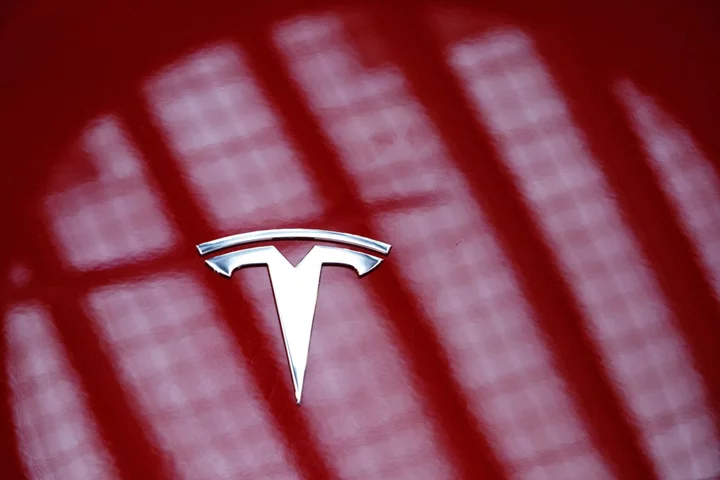Tesla Inc.’s trial over a 2019 fatal crash blamed on Autopilot will include a claim against the company for punitive damages, a Florida judge ruled, citing evidence that shows Chief Executive Officer Elon Musk and staff engineers knew its driver-assistance system was defective.
The judge found the deceased driver’s widow presented sufficient evidence of misconduct and negligence that she should be allowed to ask a jury to punish the electric-car maker if the panel concludes the wreck was Tesla’s fault.
The trial in state court in Palm Beach County — which has been repeatedly delayed and hasn’t been rescheduled yet — will pit Musk’s repeated assertion that Teslas are the safest cars ever made against technology experts expected to testify that the company’s marketing has lulled drivers into a false sense of security.
Tesla prevailed in the first lawsuit blaming a fatality on Autopilot to go to trial when a California jury cleared the company of wrongdoing last month. Several suits over fatal crashes are headed to trial in coming months in California and Florida.
Judge Reid Scott in Palm Beach County focused his ruling on an alleged flaw in the Autopilot system involving its ability to detect cross traffic. In 2016, a driver in Florida died when his Tesla slammed into the side of a truck crossing a highway — which is also how Jeremy Banner, 50, was killed in the 2019 accident.
The judge said that based on witness testimony, a jury could find that Tesla, “through its CEO and engineers, was acutely aware of the problem with the ‘Autopilot’ failing to detect cross traffic,” and didn’t make changes to its driver-assistance technology to address the danger in the nearly three years between two high-profile accidents.
Scott also said it would be reasonable to conclude that despite what Tesla learned about Autopilot’s shortcomings, it continued its marketing campaign “for the purpose of selling vehicles under the label of being autonomous.”
The Nov. 17 ruling was reported earlier by Reuters.
Read More: Tesla Didn’t Fix Autopilot After Fatal Crash, Engineers Say
Florida law allows for punitive damages in cases in which there is a finding of intentional misconduct or gross negligence. Punitive damages can amount to millions and sometimes billions of dollars and typically dwarf the amounts awarded to plaintiffs to compensate them for economic losses and pain and suffering.
Tesla and its attorneys didn’t immediately respond outside regular business hours to requests for comment.
The automaker contends it has been transparent about Autopilot’s limitations, including challenges with detecting traffic crossing in front of its cars. Tesla warns in its owner’s manual and car screens that drivers must be alert and ready to take control of vehicles at any time.
Musk was excused from being questioned in the Banner case by a judge last year. Still, a former director of Autopilot software at Tesla said in a deposition that the billionaire CEO is “hands-on,” “very involved with the product’s definition” and “very involved with making certain decisions around how things should work” with Autopilot.
Tesla faces federal probes into whether defects in Autopilot have contributed to at least 17 deaths since June 2021, as well as regulatory investigations and lawsuits over claims that it has over-hyped its progress toward hands-free driving.
The case is Banner v. Tesla Inc., 50-2019-CA-0099662, Circuit Court of 15th Judicial Circuit, Palm Beach County, Florida.

